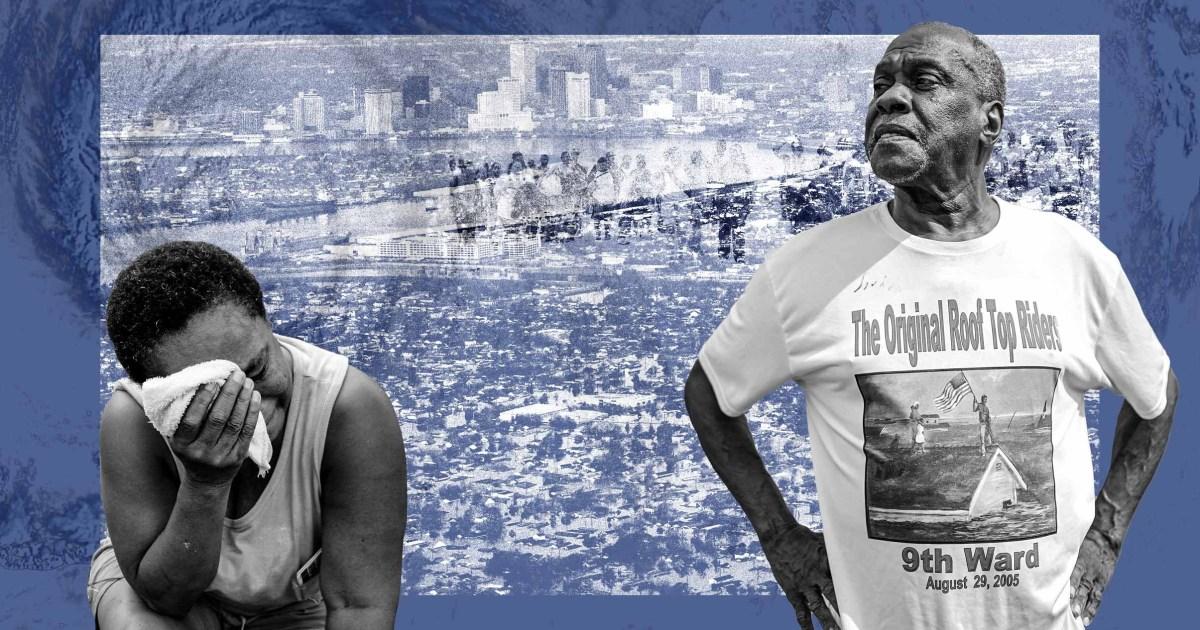UPDATE: As the 20th anniversary of Hurricane Katrina approaches, survivors from New Orleans are speaking out about the enduring impact of the disaster and the distorted narratives that emerged in its aftermath. Hours before dawn on August 29, 2005, the levees broke, unleashing catastrophic flooding that displaced millions and claimed over 1,800 lives.
Survivors recall the chaos that ensued as Hurricane Katrina, a weakening Category 3 storm, made landfall. “I thought everyone was dead,” said Lucrece Phillips, who barely escaped her flooded home. Many residents lacked means to evacuate, clinging to rooftops while others succumbed to the rising waters.
The storm caused over £92 billion in damages, leaving communities devastated and survivors grappling with trauma. “Time has stood still for us,” Phillips noted, highlighting the slow recovery process that left many feeling forgotten. As residents work to rebuild, they argue that the narrative surrounding the storm has been grossly misrepresented.
Despite the media frenzy following the disaster, survivors assert that the portrayal of chaotic looting was misleading. Tracy Curry, director of the documentary “Hurricane Katrina: Race Against Time,” emphasized that the coverage suggested that locals had descended into barbarism. “That simply wasn’t true,” she asserted. Survivors were often in desperate search of food and survival equipment, not engaging in criminal acts.
For Lynette Boutte, a lifelong resident of Tremé, the cultural fabric of her childhood neighborhood has unraveled since the storm. “There are no more children here,” she lamented, noting the closure of local schools and the loss of vibrant community life. The neighborhood, once bustling with music and laughter, now bears the scars of devastation.
Although the real estate market has surged, with homes that once sold for $25,000-$50,000 now fetching over $400,000, many original residents can no longer afford to return. The influx of wealthy developers has transformed neighborhoods, pushing out long-time locals.
The crumbling infrastructure that led to such catastrophic flooding has not been sufficiently addressed, raising concerns for future storms. Survivors fear that without significant improvements, the nation remains vulnerable to similar disasters. “Crumbling infrastructure nationwide is a ticking time bomb,” Phillips warned, referencing recent flooding in North Carolina that mirrored the horrors of 2005.
Despite the pain, the resilience of New Orleans’ residents shines through. Survivors are committed to preserving their culture and history, often through music and community gatherings. As Phillips reflects on the past, she also sees hope. “We have our music. We have our food. And there’s something that Mother Nature can’t take away from us,” she said.
As the anniversary approaches, both Phillips and Boutte urge the nation to remember the lessons of Katrina. They emphasize the need for compassion and proactive disaster response to prevent history from repeating itself.
The emotional scars remain fresh for many. “There are times when you dream about it, and there are times when you have nightmares about it,” Phillips shared. Yet, the spirit of New Orleans endures, a testament to the strength and resilience of its community.
As the world reflects on the legacy of Hurricane Katrina, the survivors continue to demand acknowledgment of their experiences, urging a truthful retelling of a story that has been too often misrepresented.






























